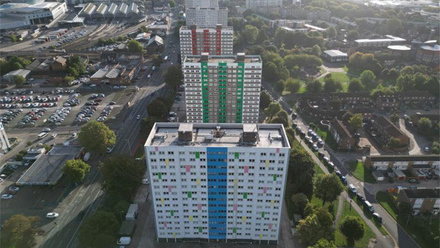King’s speech 2024
During the new Labour Government’s first King’s speech on Wednesday 17 July, Sir Keir Starmer promised they would “fix the foundations” of the country, boosting the economy with the introduction of new housing and planning laws, along with plans for green energy, increased local powers, and further rights for renters and homeowners. “Today’s new laws will take back control and lay the foundations of real change that this country is crying out for,” Starmer said, but do his cabinet’s plans reflect these ambitions? And will these changes be good for Chartered Architectural Technologists and other built environment professionals?
Starmer’s commitment to building 1.5 million homes in five years has been much publicised, with the Prime Minister repeatedly stating his Government will be “builders, not blockers.” The proposed Planning and Infrastructure Bill, announced on Wednesday, will “turbocharge building of houses and infrastructure”, according to the Government. It will put more power into the hands of local planning authorities and update planning policy to accelerate and improve decision-making.
The Bill also tackles issues such as nature recovery, boosting renewable energy and upgrading the national grid, all of which are core aspects of Architectural Technology.
Perhaps most notably, the King’s speech established both Labour’s Great British Energy Bill and its Warm Homes Plan. The former establishes a publicly owned energy company in an attempt to cut energy bills and create jobs, but stops short of establishing long-term goals for the country to reduce its energy consumption to net zero. The Warm Homes Plan offers grants and “low interest loans” for five million homes to support investment in insulation, solar panels, batteries and low carbon heating. They ensure that their plans mean homes in the private rented sector will meet minimum efficiency standards by 2030, and that there will be “good skilled jobs for tradespeople in every part of the country.”
There was, however, no detailed breakdown in the speech of how the Government might tackle the affordable housing crisis or increase the social housing provision, or, irrespective of unblocking the planning system, who exactly is going to build the 1.5 million homes promised, considering the current major skills shortage in the built environment sector. Nor did the Government recognise that the Warm Homes Plan will only work with a substantial increase in both trained assessors and installers.
That said, we welcome the proposed Skills England Bill, which would see a body of employers, education/training providers and unions assess current and future skills needs across England, and the Institute urges the Government to recognise the critical need for more skilled professionals in the built environment sector.
A core principle of the new Government is an increased focus on empowering and growing local communities. Through the English Devolution Bill, the government will grant local leaders the ability to make decisions over strategic planning, produce Local Growth Plans, and more. Empty community spaces will be given the chance to be reestablished by their own communities through a right-to-buy scheme, which aims to help struggling high streets and town centres. This allows communities to cater to their own needs, and if done correctly could lead to a welcome surplus of interesting, bespoke and characterful spaces across the country.
Sir Keir Starmer’s Labour Government has admirable aims to build new homes and commit to green energy that would position Chartered Architectural Technologists as invaluable in boosting the built environment sector and the economy generally. CIAT fully supports the Government’s commitment to fix the nation’s foundations through increased emphasis on housing, planning and sustainability, and reiterates the need to boldly commit and develop these bills and policies over the next five years.






